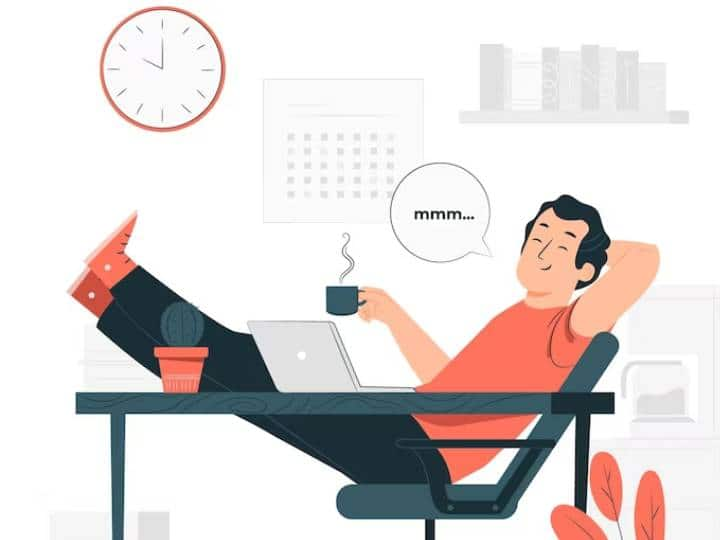There are times when you don’t want to work. Although you are not physically ill. Do you need a day off for your mental health? If you do, should you give the exact reason when you inform your manager about your leave? If you work in an organization or team where you feel safe to discuss mental health challenges, you are in luck. Despite all the progress we’ve made in understanding and talking about mental health, the misconceptions and prejudices surrounding it are still prevalent enough to prevent many of us from voluntarily telling bosses and colleagues when we’re experiencing mental distress. are facing.
Mental struggle is also a struggle in itself
Mental health challenges come in different forms. For some it will be a serious lifelong struggle. For many others, it will be a time of much-needed relaxation and relief from excess stress. Globally, the World Health Organization estimates that some 970 million people – around one in eight people – suffer from a mental disorder at any one time. of which there are approximately 380 million cases of anxiety disorders and approximately 360 million cases of depression. The number has risen by nearly 25 percent since 2019, with the rise being attributed to social isolation, economic hardship, health concerns and stress associated with the pandemic. But the decline in mental health is a long-term trend, and it Work-related stressors are likely to play a role as well.
Lack of importance and respect
Research identifies three main workplace contributors to mental ill-health. Identifies: unbalanced job patterns when people have high job demand, yet little job control, occupational uncertainty, and a lack of importance and respect. This at least partially explains why in rich industrialized countries Why depression and anxiety appear to be more prevalent. In the US, for example, it is estimated that more than half of the population will experience a diagnosable mental disorder at some point in their lifetime. Managerial attitudes are slowly changing. Therefore, for the modern workplace, mental health is increasingly a part of the landscape. has become a part. But prejudices and biases are hard to shift.
You should talk to your boss about your mental health
People with these challenges are still vulnerable , are seen as people with unstable or low potential. These behaviors make it more difficult for people with mental health disorders to find meaningful work and progress in their careers. Business executives and managers, like the rest of the population, have mental health issues or the skills to manage it in the workplace. There is limited knowledge about blind spot management. This is reflected in the research literature. The best recent study of managerial understanding of mental health issues dates back to 2014. It found that only one in ten HR professionals and managers felt confident in supporting employees with mental health challenges. Even when managers recognize that there are inherent biases against employees with mental health challenges Even then, they don’t know what to do about it. So it’s no surprise that many employees avoid disclosing their mental challenges to coworkers and managers, fearing a lack of understanding and possible negative consequences for their careers. Many are reluctant to share.
But keeping it a secret can make mental health worse. Have a conversation What to do with it? Our research shows that leadership is important. For all organizations, cultural change can start with leaders and managers speaking more openly about their own mental health challenges. Language choices matter, too. The way we talk about mental health can change the way we think about it. For example, Australia’s National Mental Health Commission refers to ‘mental health challenges’ rather than ‘mental illness’. Such a framework can help others to treat Mental Health Day as something that anyone may need, not just a few people who are ‘sick’. For larger organisations, a The innovative idea is to have a ‘mental health advocate’ These may be employees with personal experience of serious mental health challenges. Energy Queensland, a state-owned organization with about 7,600 employees and tasked with maintaining the state’s electricity distribution infrastructure, did so in 2017.
Two of its employees, James Hill and Aaron McCann, now works full-time as a ‘mental health lived experience advocate’. Hill previously worked for the corporation as an electrician and McCann as a lineworker. Both have suffered from deep depression and suicidal thoughts. Our research – which includes a survey of more than 300 psychologists, psychiatrists and others working in mental health services – suggests that ‘lived experience’ advocates encourage more open organizational cultures , helping others break down the illusions that hold them back from acknowledging their mental health challenges. There is no doubt that workplaces that acknowledge and accommodate the mental health stresses of modern life gain a competitive advantage.




